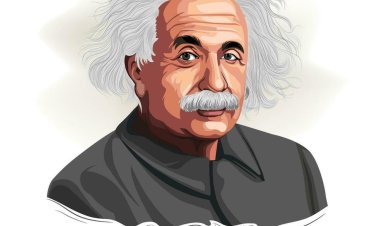Albert Einstein, one of the most brilliant minds in the history of physics, revolutionized our understanding of the universe with groundbreaking inventions and theories. His contributions, spanning from the theory of relativity to the photoelectric effect, have left an indelible mark on science and technology.
Einstein’s most renowned work, the theory of relativity, transformed our perception of space, time, and gravity. Published in 1905 and later expanded with the general theory of relativity in 1915, these theories redefined the classical Newtonian understanding of physics. The special theory of relativity introduced the famous equation E=mc^2, demonstrating the equivalence of energy and mass. This formula would become the cornerstone of nuclear physics and pave the way for the development of atomic energy.
The general theory of relativity, on the other hand, presented a new understanding of gravity. Rather than a force between masses, Einstein proposed that gravity arises from the curvature of spacetime caused by mass and energy. This profound insight not only explained the motion of planets and stars but also predicted phenomena like gravitational time dilation and the bending of light around massive objects.
Einstein’s work on the photoelectric effect earned him the Nobel Prize in Physics in 1921. He proposed that light consists of discrete packets of energy called photons. This theory explained the peculiar behavior observed in the photoelectric effect, where electrons are emitted from a material when exposed to light. The photoelectric effect laid the foundation for the development of quantum theory, further revolutionizing our understanding of the microscopic world.
In addition to his theoretical contributions, Einstein’s invention of the Einstein refrigerator in 1926 demonstrated his practical ingenuity. Co-invented with Leo Szilard, the absorption refrigerator required no electricity and operated based on the principle of absorption and evaporation. While not as famous as his theories of relativity, this invention showcased Einstein’s versatility and his commitment to addressing real-world problems.
Albert Einstein’s impact on physics extends far beyond equations and theories; it permeates our daily lives through technology, medicine, and our fundamental understanding of the cosmos. His inventions and insights have paved the way for countless advancements, inspiring generations of scientists to explore the mysteries of the universe. As we continue to unravel the complexities of the physical world, we owe a debt of gratitude to the genius of Albert Einstein, whose inventive spirit forever altered the landscape of physics.
